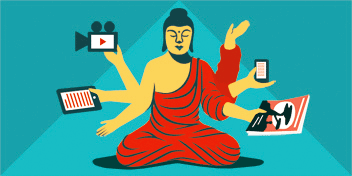I read recently that Buddha said that under no circumstances are we to use violence against another, not even in self-defense. Are we classifying violence as harm-done-in-anger? And if so, is there any martial arts tradition that you can use as self-defense that does not involve anger and therefore, would be acceptable? If not, am I to resign myself to death if attacked?
Gassho,
Lisa
Gassho,
Lisa







Comment